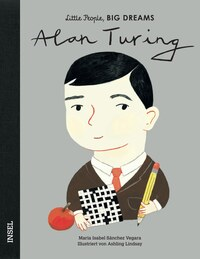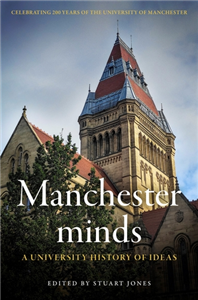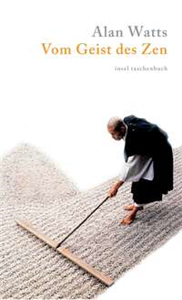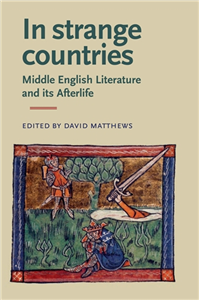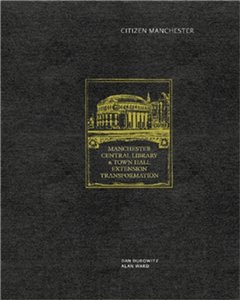Your Search Results
-
Promoted Content
-
Promoted ContentSeptember 2016
Bottom's Dream
by Arno Schmidt, John E. Woods
35 Jahre lang hat John E. Woods Arno Schmidt übersetzt, fast das gesamte literarische Werk des deutschen Schriftstellers übertrug der Amerikaner in seine Muttersprache. Die erste Schmidt-Lektüre war für ihn eine »Explosion« – mit Schmidts »Evening Edged in Gold« (»Abend mit Goldrand«) hat der preisgekrönte Übersetzer seine Karriere einst begonnen, dessen wichtigstes und umfangreichstes Werk hob sich Woods bis zum Schluss auf: Jetzt liegt der Überroman »Zettel’s Traum« endlich auf Englisch vor. Schmidts Sprachspiele, eine Herausforderung für jeden Übersetzer, hat Woods immer kreativ in die flexible englische Sprache übertragen, und manchmal ist seine Lösung witziger als das Original. John E. Woods über Bottom’s Dream: »›I have had a dream past the wit of man to say what dream it was,‹ says Bottom. ›I have had a dream, and I wrote a Big Book about it,‹ Arno Schmidt might have said. Schmidt’s rare vision is a journey into many literary worlds. First and foremost it is about Edgar Allan Poe, or perhaps it is language itself that plays that lead role; and it is certainly about sex in its many Freudian disguises, but about love as well, whether fragile and unfulfilled or crude and wedded.«
-
 Trusted Partner
Humanities & Social SciencesMarch 2017
Trusted Partner
Humanities & Social SciencesMarch 2017Imperialism and the natural world
by John M. MacKenzie
Imperial power, both formal and informal, and research in the natural sciences were closely dependent in the nineteenth century. This book examines a portion of the mass-produced juvenile literature, focusing on the cluster of ideas connected with Britain's role in the maintenance of order and the spread of civilization. It discusses the political economy of Western ecological systems, and the consequences of their extension to the colonial periphery, particularly in forms of forest conservation. Progress and consumerism were major constituents of the consensus that helped stabilise the late Victorian society, but consumerism only works if it can deliver the goods. From 1842 onwards, almost all major episodes of coordinated popular resistance to colonial rule in India were preceded by phases of vigorous resistance to colonial forest control. By the late 1840s, a limited number of professional positions were available for geologists in British imperial service, but imperial geology had a longer pedigree. Modern imperialism or 'municipal imperialism' offers a broader framework for understanding the origins, long duration and persistent support for overseas expansion which transcended the rise and fall of cabinets or international realignments in the 1800s. Although medical scientists began to discern and control the microbiological causes of tropical ills after the mid-nineteenth century, the claims for climatic causation did not undergo a corresponding decline. Arthur Pearson's Pearson's Magazine was patriotic, militaristic and devoted to royalty. The book explores how science emerged as an important feature of the development policies of the Colonial Office (CO) of the colonial empire.
-
 Trusted Partner
September 2020
Trusted Partner
September 2020Alan Turing
Little People, Big Dreams. Deutsche Ausgabe | Kinderbuch ab 4 Jahre
by María Isabel Sánchez Vegara, Ashling Lindsay, Svenja Becker
Von klein auf waren Alans beste Freunde ein Junge namens Christopher und die Zahlen. Als Christopher starb, war die Mathematik Alans Trost. Er entwickelte Schachprogramme und schaffte es, komplizierte Codes zu knacken, die niemand zuvor entschlüsselt hatte. Seine Beiträge machten später die Erfindung des Computers möglich. Little People, Big Dreams erzählt von den beeindruckenden Lebensgeschichten großer Menschen: Jede dieser Persönlichkeiten, ob Malerin, Sänger oder Architektin, hat Unvorstellbares erreicht. Dabei begann alles, als sie noch klein waren: mit großen Träumen.
-
 Trusted Partner
November 2021
Trusted Partner
November 2021The Forest of the Future – A New Reality
Understanding the ecosystem
by Hans Jürgen Böhmer
What happened with forest dieback? The predictions of the 1980s that forests would be in decline across Europe have not come true. Currently, attention again focuses on the doom scenarios of the loss of entire forests and cultural landscapes in an emotional and sometimes hysterical debate. Biogeographer Hans Jürgen Böhmer refers to updated case studies and his 30 years of research experience on global ecosystems to demonstrate extremely complex interrelations of the natural world that various actors monitor in contrasting ways and characterized by different times and ideologies. Böhmer advocates to embed the sustainability debate more strongly in the living environment, rather than relying exclusively on model calculations.
-
 Trusted Partner
Humanities & Social SciencesSeptember 2024
Trusted Partner
Humanities & Social SciencesSeptember 2024Manchester minds
A university history of ideas
by Stuart Jones
A bicentennial celebration of brilliant thinkers from The University of Manchester's history. The year 2024 marks two centuries since the establishment of The University of Manchester in its earliest form. The first of England's civic universities, Manchester has been home and host to a huge number of influential thinkers and generated world-changing ideas. This book presents a rich account of the remarkable contribution that people associated with The University of Manchester have made to human knowledge. A who's who of Manchester greats, it presents fascinating snapshots of pioneering artists, scholars and scientists, from the poet and activist Eva Gore-Booth to the economist Arthur Lewis, the computer scientist Alan Turing and the physicist Brian Cox.
-
 Trusted Partner
January 2012
Trusted Partner
January 2012Reise um den Mond. Mit einem Vorwort von Ralph Caspers
Arena Kinderbuch-Klassiker
by Verne, Jules / Einleitung von Caspers, Ralph
-
 Trusted Partner
Trusted Partner
-
 Trusted Partner
Literature & Literary StudiesAugust 1994
Trusted Partner
Literature & Literary StudiesAugust 1994Political Shakespeare
Essays in cultural materialism
by Jonathan Dollimore, Alan Sinfield
The new wave of cultural materialists in Britain and new historicists in the United States here join forces to depose the sacred icon of the "eternal bard" and argue for a Shakespeare who meditates and exploits political, cultural and ideological forces. Ten years on, this second edition presents additional essays by Jonathan Dollimore and Alan Sinfield. ;
-
 Trusted Partner
May 2008
Trusted Partner
May 2008Vom Geist des Zen
by Alan Watts, Julius Schwabe
Zen ist keine theoretische Belehrung, es ist kein Studium von Schriften. Zen gründet sich vielmehr auf Praxis und auf persönliches Erleben der Wirklichkeit. Es bedeutet den unmittelbaren Kontakt mit dem Leben mit dem Ziel, eine nahtlose Verbindung zwischen Ich und Leben zu schaffen. Der große amerikanische Religionsphilosoph Alan Watts (1915-1973) hat diese Einführung in den Geist des Zen und den Zen-Buddhismus eigens für westliche Leser verfaßt und zeigt ihnen Wege auf, wie sie sich dem Denken des Zen nähern können. Das Buch wurde zum Klassiker.
-
 Trusted Partner
FictionMay 2019
Trusted Partner
FictionMay 2019Mozart and the Wolf Gang
By Anthony Burgess
by Alan Shockley
Written in 1991 to commemorate the bicentennial of Mozart's death, Burgess's novella-length piece is a compendium of themes, genres and even art-forms revolving around the one central preoccupation of the entire Burgess oeuvre: the reconcilability of life and art. This is a kaleidoscope of a book, which stretches even the bounds of even Anthony Burgess's fiction in an attempt to understand Mozart through celestial dialogue, an opera libretto, and fragments of a film script. As gracefully witty as it is daringly experimental, Mozart and the Wolf Gang is one of Burgess's late, great works, often overlooked due to its experimental form, which nevertheless remains accessible, entertaining and yet refreshingly original to this day. This new critical edition with analysis from noted musicologist and a first-class literary critic Alan Shockley enables this work's significance within the fields of literary modernism, fictional biography, and fiction about music, to be assessed by a new generation of readers and scholars.
-
 Trusted Partner
Literature & Literary StudiesDecember 2010
Trusted Partner
Literature & Literary StudiesDecember 2010In Strange Countries: Middle English Literature and its Afterlife
Essays in memory of J. J. Anderson
by Anke Bernau, David Matthews
These essays by senior scholars in medieval studies celebrate the career of J.J. Anderson, editor, critic, and co-founder of the Manchester Medieval Literature and Culture series, who taught in medieval studies at the University of Manchester for forty years. The essays are rooted in medieval literature but frequently range beyond the confines of the Middle Ages. They reflect the breadth of Anderson's own scholarly interests, especially in drama and Arthurian literature. There is a particular focus on Sir Gawain and the Green Knight and Pearl, poems which preoccupied him throughout his scholarly life. There are also new reconsiderations of La?amon's Brut, Mirk's Festial, the Passion plays, and the manuscripts of the Pore Caitif. Moving beyond the traditional purview of medieval literature, several contributors trace the afterlives of medieval themes in later literature. These essays include a consideration of the twinned trajectories of the medieval heroes Robin Hood and King Arthur from medieval literature to modern television, a comparison of La?amon's Brut and Tennyson's Idylls of the King, and a recreation of the Bishop Blase procession which took place in industrial Bradford. Contributors are Rosamund Allen, Ralph Elliott, Alexandra Johnston, Stephen Knight, Peter Meredith, Susan Powell, Gillian Rudd, Alan Shelston, and Kalpen Trivedi. ;
-
 Trusted Partner
The ArtsSeptember 2012
Trusted Partner
The ArtsSeptember 2012Tony Richardson
by Robert Shail, Brian McFarlane, Neil Sinyard
Tony Richardson was a key figure in British cinema of the 1950s and 1960s. Having established himself in the theatre with the first production of John Osborne's landmark play Look Back in Anger, he became a central director in the New Wave, bringing greater realism to British cinema. He went on to make some of the most significant films of the 1960s including the multi Oscar-winning Tom Jones. This detailed and authoritative account of Richardson's career provides a reassessment of his achievements. As well as looking at his best known films, it considers neglected works such as Ned Kelly and Joseph Andrews, illustrating how Richardson remained a champion of the socially marginalised. In mapping out his life and work, from the English Stage Company to his final films in America, Shail re-establishes Richardson's at the front rank of British film directors, confirming his contribution to a period of dynamic change in British culture. ;
-
 Trusted Partner
Trusted Partner
-
 Trusted Partner
Trusted Partner
-
 Trusted Partner
Trusted Partner
-
 Trusted Partner
Literature: history & criticismMarch 2010
Trusted Partner
Literature: history & criticismMarch 2010Reading, writing and the influence of Harold Bloom
by Alan Rawes and Jonathon Shears
Reading, writing and the influence of Harold Bloom takes the work of the world's best-known living literary critic and discovers what it is like to read 'with', 'against' and 'beyond' his ideas. The editors, Alan Rawes and Jonathon Shears, introduce the collection by assessing the impact of Bloom's brand of agonistic criticism on literary critics and its ongoing relevance to a discipline attempting to redefine and settle on its collective goals. Firmly grounded in, though not confined to, Bloom's first specialism of Romantic Studies, the volume contains essays that examine Bloom's debts to high Romanticism, his quarrels with feminism, his resistance to historicism, the tensions with the 'Yale School' and his recent work on Shakespeare and genius. Crucially, chapters are also devoted to putting Bloom's anxiety-themed ratios into practice on the poetry of Wordsworth, Shelley, Keats and D. H. Lawrence, amongst others. The Harold Bloom that emerges from this collection is by turns divisive and unifying, marginalised and central, radical and conservative.
-
 Trusted Partner
Photography & photographsMarch 2014
Trusted Partner
Photography & photographsMarch 2014Citizen Manchester
by Dan Dubowitz, Alan Ward
In 2008, Manchester decided to embark on a counter-cyclical project, much as the city fathers had done in the last great recession, and invest significantly in two civic buildings, two buildings that were cornerstones of the making of the first modern industrialised city: Manchester Town Hall Extension and Manchester Central Library. Early on in this major redevelopment project, artists Dan Dubowitz and Alan Ward were given privileged and open access to witness this transformational period in the life of these two iconic buildings. Through large-format photographs and interviews taken and conducted over a period of eighteen months, they captured the moment when the city's citizens and workers had been locked out and the spaces were being stripped bare; revealing both a glimpse of what they had been and what they might become. The artwork provides insights on the reciprocal relationship between people and place, and reveals how the refurbishment of a building can go far beyond physical refurbishment, questioning the relationships between a city, its citizens and place.
-
 Trusted Partner
Trusted Partner
-
 Trusted Partner
December 2100
Trusted Partner
December 2100Nach der Globalisierung?
Aufstieg, Fall und Zukunft einer Wirtschaftsordnung
by Gabriel Zucman, Stephan Gebauer
Groß waren die Hoffnungen Anfang des 21. Jahrhunderts: Dank der Globalisierung könnten sich Menschen und Unternehmen nun besser vernetzen als je zuvor. Die Erde, so brachte es ein US-amerikanischer Journalist auf den Punkt, sei flach geworden. Dann führte uns die Coronapandemie vor Augen, wie zerbrechlich die Weltwirtschaftsordnung ist. Und seit seinem Amtsantritt im Januar 2025 erschüttert Donald Trump beinahe täglich ihre Grundfesten. Ausfuhrbeschränkungen statt Kooperation, Zölle statt Freihandel. Die Erde, so scheint es, ist nicht länger flach. Gabriel Zucman, der »Robin Hood der Ökonomie« (Wirtschaftswoche), legt eine schonungslose Analyse der gegenwärtigen Lage vor. Er zeigt, welche politischen Entscheidungen uns hierher geführt haben und wie es in Zukunft weitergehen kann. Die Demokratien sollten sich zusammenschließen und Konzerne dort zur Kasse bitten, wo sie ihr Geld verdienen, anstatt einander mit Steuervorteilen zu überbieten. Angesichts der sich verschärfenden Konkurrenz zwischen Staaten plädiert Zucman für einen erneuerten Internationalismus. Bleibt die protektionistische Rhetorik unbeantwortet, droht aus der Globalisierung ein Nullsummenspiel zum Nutzen einer Oligarchie zu werden. Ihre Gestalt wird die Erde nicht mehr ändern, aber die Macht, sie zu gestalten, lässt sich zurückgewinnen.









